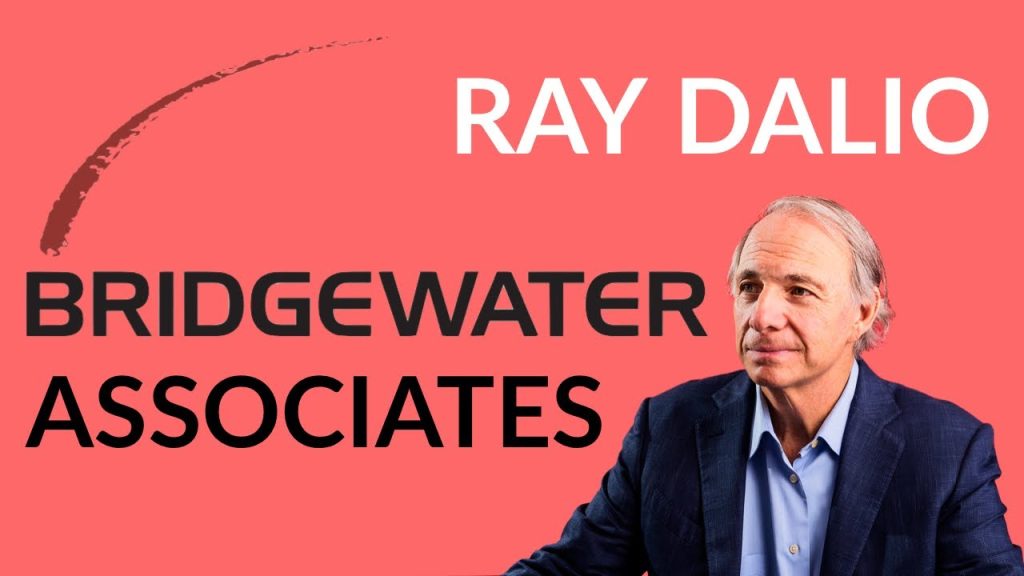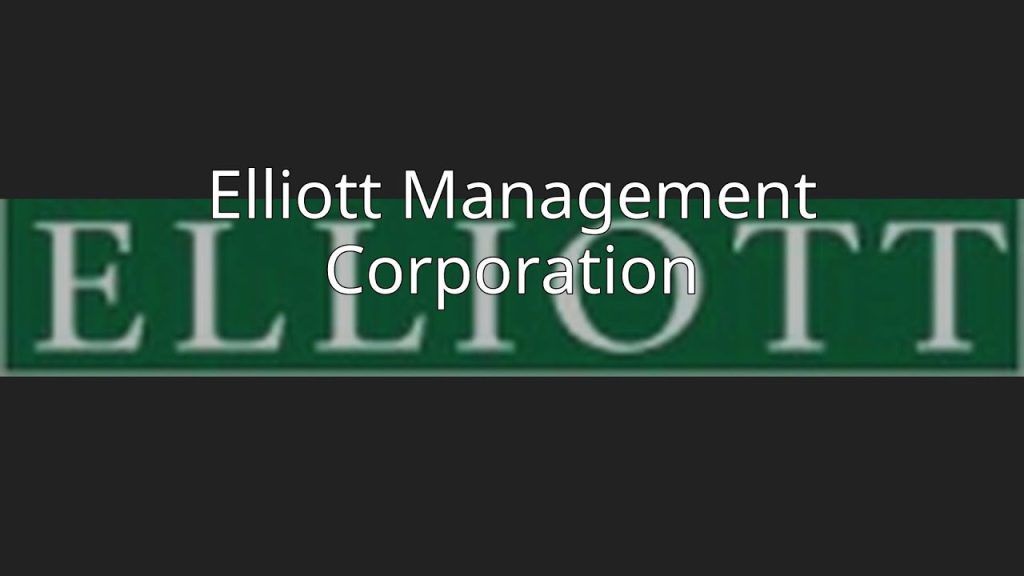“Was I tricked?” Hedge fund investing may be far from you. Hedge Funds?
Hedge funds target high-net-worth people who are willing to risk more for higher profits. Privately managed financial organizations receive private financing. Hedge funds charge affluent investors 2% of assets under management and 20% of profits, making them inaccessible to ordinary investors. Hedge funds invest differently.
Some hedge fund organizations need approved investors to deposit $25,000 to $100,000, or even more than $1 million. Hedge funds can own stocks, bonds, and commodities. Many hedge funds in the financial markets have had ups and downs, but some have made sky-high gains and remain the top.
So, the list of the largest Hedge Funds in the US based on total assets under management is below.
List of Largest Hedge Funds in the US
1. Bridgewater Associates (AUM: $140 Billion)

Bridgewater Associates is the largest hedge fund in the US and manages around $150 billion in investor money. Founded by Ray Dalio in 1975, this institute hardly has 1500 employee, firm’s headquarters is currently in Westport, Connecticut and works with pension funds, foreign governments, charitable foundations and central banks. Ray Dalio has made sure that Bridgewater survives after all the difficulties.
The company offers funds such as, Pure Alpha which specializes in investment strategies, Pure Alpha Major Markets which focuses mainly on various opportunities that Pure Alpha offers. All Weather which specializes in asset allocation strategies. Optimal Portfolio an active version of the All-Weather fund with active management. The firm recently encountered a gargantuan loss last year, still Ray Dalio’s Bridgewater remains one of the strongest hedge funds with profits of more than $46 billion and regardless, he is still the best hedge fund manager. Ray Dalio started playing smart at the age of 12 by getting tips elders and his current net worth is $20.3 billion. He is also known as a philanthropist and has donated more than $850 million.
2. Renaissance Technologies (AUM: $130 Billion)
We all know that what hedge funds generally do, do we? Well, Renaissance technologies LLC, also RenTec has successfully managed to keep it in secrecy. It has created quantitative models that directs them about trading, equity, futures contracts, forward contracts also exchange. Founded in 1982, Renaissance Technologies is the second largest hedge fund in the US; the headquarter is located at East Setauket, New York and currently pays more than 76% of the annual fee before the fee with only 300 employees, isn’t is amazing? Jim Simons, the “Quant King”, the award-winning mathematician and the master behind all the planning is one of the ideal hedge fund managers in the world, ranked first on the Forbes 2019 list of highest-earning hedge fund managers. Jim Simon’s competitive fund has been trying terrifically to be successful of all by crushing the market and their most successful product, Medallion Fund uses a “Black Box” strategy is famed for the inside used mantra.
3. Millennium Management (AUM: $48.3 Billion)
Founded in 1989, Millennium Management currently employs nearly 2,600 people and provides services all over North America, Europe and Asia. There are 200 investment teams that offer volunteer advice for private companies, industry sectors, asset classes, and geographies. Located in New York, United States, Israel Englander is the founder and one of the best hedge fund managers who earned $3.8 billion in 2020 than any hedge fund manager in the following year.
4. Elliott Investment Management (AUM: $45 Billion)

Elliott Management is an investment management company or fourth largest hedge fund, also one of the largest activist funds globally manages everything from funds and equities to commodities and real estate. The company roughly manages about 468 people and has investments in Twitter, Comcast, Samsung, Burns and Noble and so on. The Elliott Corporation was founded by the Co-CEO Paul Singer, based in New York City. According to Fortune Magazines, he is one of the toughest and smartest hedge fund managers in the history of hedge funds. After working with private equity firms and determining what features were created for a good target, Elliott decided to enter the private equity business himself. The existing private equity fund has witnessed the pattern and has recently taken active bets on public company instead of trying for total purchases.
5. BlackRock (AUM: $39.9 Billion)
The company manages an astounding $8.67 trillion in public companies like pension plans, governments, insurance companies, official institutions, endowments as well as charities, corporations, banks, sovereign wealth funds, individual savers, and hedge funds. BlackRock is actually the biggest hedge fund in the world when you count assets under management. Some of the company’s most prominent shares are iShares, BlackRock Solutions, and ESG investing. Laurence D. Fink is Founder and Chief Executive Officer of BlackRock and has been named one of the “World’s Greatest Leaders” by Fortune; he is one of the best hedge fund managers that put BlackRock on the track. He has also worked with private companies to maximize the progress.
6. Two Sigma Investments (AUM: $38 Billion)
Two Sigma is a data driven hedge fund and in their investment strategy it applies to artificial intelligence, machine learning and distributed computerization. Founded just 20 years ago in 2001, the company has adopted a post-investment technology-centric approach. The company does not like to promote itself as hedge fund firm, but reinventing institutional investor. Based in New York, United States, Two Sigma Investments currently employs 1,100 people and operates offices across North America, Europe and Asia. David Siegel, the hedge fund manager of Two Sigma is also an investor, computer scientist and one of the richest hedge fund managers.
7. Citadel LLC (AUM: $35 Billion)
Citadel LLC is a Chicago-based multinational institutional investor founded in 1990 and is known to focus on equities, fixed income, commodities, credit, and quantitative strategies. Surprisingly, this firm was founded by a 19-year-old Harvard student Kenneth Griffin. As a sophomore, he began trading convertible bonds and currently his net worth is 16 billion dollars. Today, the company employs 1,400 people and maintains offices throughout North America, Europe, and Asia and provides diversification versus traditional stock markets.
8. D. E. Shaw & Co. (AUM: $34.2 Billion)
Founded in 1988 by David E. Shaw, D.E. Shaw & Co. is an institutional investor that uses sophisticated mathematical models and computer programs to measure when market inconsistencies occur and when they should confer. It uses a combination of quantitative as well as qualitative tools to uncover independent and hardly found sources of a return across global financial markets or public and private company. The company employs 1,400 people. From the very beginning, it has consistently provided the fifth-highest return on investment in the world. Relying heavily on math and programming, D.E. Shaw & Co. is also known for some educational programs. These include the American Regions Mathematics League, the Global Online Olympiad Training (WOOT), and the International Mathematical Olympiad. David Shaw’s net worth is $6.5 billion.
9. AQR Capital Management (AUM: $32.1 Billion)
AQR Capital Management is a Connecticut-based investment firm with more than a thousand employees and locations in Boston, Chicago, Los Angeles, Bangalore, Hong Kong, London, Sydney, and Tokyo. In general, AQR’s investments drive quantitative analysis and the predicted values and speeds that they use to create the financial models reported later in financial markets. The financial firm based in Greenwich, Connecticut maintains its interest in education and is well known for its academic staff; at least half of its employees have PhDs. The company partnered with the London Business School, and both founded the AQR Asset Management Institute in 2014. The school focuses primarily on valuable investment skills. In stock market, AQR Capital Management’s largest hold is Apple Inc. with shares of 16,476,321.
10. Davidson Kempner Capital Management LP (AUM: $31.8 Billion)
Davidson Kempner is an institutional investor, investment management firm that focuses on capital management hedge funds. The company manages 347 employees in five offices in New York City, London, Dublin, Hong Kong and Philadelphia. In general, Davidson Kempner focuses on the down-up approach to investing. Their solemnity towards fundamental analysis leads them to regular investments in regular collateral arbitration, distressed investments, equities, convertible bonds and bankruptcies. Michael Herzog, current hedge fund manager of Davidson Kempner joined the firm in 2001, manages Davidson Kempner’s global risk arbitrage and global long / short equities businesses. In Stock market, IQ, VTRSV, ARKO are held by Davidson Kempner Capital Management.
11. Farallon Capital Management, L.L.C (AUM: $30 Billion)
Founded in 1986, Farallon Capital is an American investment firm that currently employs 165 professionals and operates offices in the United States, Brazil, Japan, Singapore, Hong Kong and the United Kingdom. This organization mainly manages capital for clients such as university grants, foundations and other wealthy individuals. Farallon invests directly in private companies and real estate and is run by Tom Steyer. CNC, FIS, ARMK are some of the shares held by Farallon Capital in stock market.
12. Baupost Group (AUM: $29.1 Billion)
Founded in 1982 by Harvard Professor William Poorvu and his colleagues, Baupost group has an astonishingly large resource to be managed by just 145 people. One of the largest hedge funds, it is headquartered in Boston and London, but is based in the United States. Overall, the Baupost Group focuses on risk management, long-term investments and value investments. Seth Klarman, the organization’s top member and CEO, is an investment legend. Baupost manages investment in a wide range of asset classes, including significant holdings in publicly traded debt and equity securities, private debt, real estate, and private equity.
13. Canyon Capital Management (AUM: $22.8 Billion)
Canyon Capital Management is the second hedge fund on the West Coast and specializes in investing in effective asset funds, family offices, recognition, foundations, pension funds and other institutional investor situations. The company was founded in 1990 and it has about 200 employees. Usually, Canyon manages and invests in bank debt, distressed loans, convertible bonds, risk arbitrage, securitized assets, corporate bonds, equities, and special situation securities to garner their AUM. The firm’s clients and fund investors include pension plans, corporations as well as public and private companies.
14. Wellington Management Company (AUM: $21 Billion)
With more than 2,200 employees, Wellington Management is a private and an independent investment management company that employs a considerable number of people and assets under management totaling over $1 trillion. By June 30, 2020, the company has served as an investment advisor to 2,200 companies in more than 60,000 countries. Its clients include central banks and efficient institutions, pension funds, grants and foundations, fund sponsors, insurance companies, financial intermediaries and asset managers.
15. Viking Global Investors (AUM: $19.9 Billion)
Viking is based in Greenwich, Connecticut, which was founded in 1999 and employed roughly 200 professionals. Overall, this company focuses on early and late-stage ventures. Vikings share a lucid objective and everyday culture; the goal is to provide best performance to the investors.The company offers capital management, research, equities, investment strategies, financial planning, and advisory offers.
It may look like a magic, a room full of wealthy clients, some investments and riskier steps and BOOM, there is your hedge fund. Actually, it takes lots of smarter plans to grow such a huge firm because the work against the market flow and guarantee to maximize investor’s returns. It may feel good or bad to you in different steps, but it clearly depends on your approach and reasons.

